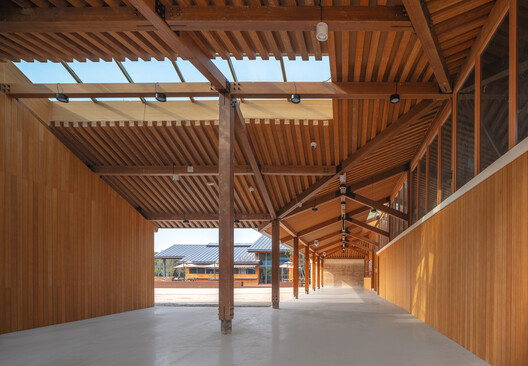Executive Suites & Coworking: Is Flexible Office Space in NYC Right for Your Established Business?


The image of coworking spaces as hubs for freelancers and fledgling startups is beginning to feel outdated—especially in a city like New York. In recent years, flexible office spaces have evolved beyond kombucha taps and shared hot desks. They’ve become strategic tools for companies of all sizes, including established businesses with sophisticated needs and serious teams.
For mid-sized companies, remote-first teams, growing startups, and even corporations with satellite offices, New York’s executive suites and coworking options now offer a compelling blend of prestige, flexibility, and cost control.
But the question remains: Is flexible office space in NYC right for your business?
If you’re navigating rising commercial lease costs, hybrid work expectations, or expansion into the New York market, it’s worth taking a closer look. In this article, we’ll explore how flexible office solutions are being used by established businesses, what sets executive suites apart from traditional coworking, and how to determine whether it fits your business goals.
The Changing Face of Office Space in NYC
Commercial real estate in Manhattan has never been simple—or cheap. Traditional long-term leases often require multi-year commitments, large deposits, and significant upfront costs for buildouts and furnishing. Even before 2020, this model posed challenges for companies trying to remain agile. In the years since, the dynamics have shifted even more.
Now, flexible office space has matured into a serious alternative.
Companies are increasingly choosing:
- Private executive suites in coworking buildings
- Dedicated team rooms with shared amenities
- Hybrid access memberships for distributed teams
- On-demand meeting and event space
These aren’t just workarounds for startups. They’re part of a larger trend toward workspace-as-a-service, where businesses pay for what they use and adapt as they grow.
Executive Suites vs. Coworking Spaces: What’s the Difference?
While often grouped together, executive suites and coworking spaces serve slightly different needs.
Executive Suites
These are fully furnished, private office spaces located within larger serviced office centers. They often include:
- A business address in a prestigious location
- Dedicated offices or suites with lockable doors
- Shared amenities (conference rooms, reception, mail handling)
- Flexible lease terms (monthly to yearly)
- Enterprise-grade internet and IT support
Think of it as renting a private office inside a professional business center—without the hassle of setting it up yourself.
Coworking Spaces
Coworking offers a more communal, open-plan environment, typically with:
- Shared desks (hot desks or dedicated)
- Lounge-style seating and collaborative areas
- Community events, perks, and networking opportunities
- Flexible day-to-day or monthly passes
Modern coworking spaces often include the option to upgrade to private offices within the facility, which can blur the line between coworking and executive suites.
Why Established Businesses Are Embracing Flexibility
The pandemic accelerated remote and hybrid work, but it also revealed something else: many businesses need a different kind of space. Not necessarily less space—but smarter, more dynamic space.
Here’s why flexible office space is gaining traction with more mature companies:
1. Scalability Without Commitment
Need room for six employees this quarter, but possibly 12 next year? A flexible office provider can usually accommodate changes without renegotiating a lease. That kind of agility is especially useful for fast-moving teams or companies opening satellite offices in NYC.
2. Access to Prime Locations
Securing office space on Park Avenue or in SoHo through a traditional lease can be prohibitively expensive. Executive suites offer access to Class A addresses and impressive buildings without the long-term burden or need for capital investment.
For client-facing firms—legal, finance, consulting, or design—this presence matters.
3. Hybrid Work Infrastructure
Many established companies have adopted hybrid models, where employees come into the office two or three days a week. In that case, why pay for desks that sit empty? Flexible offices support a right-sized footprint with options to rotate staff or book desks on demand.
4. No Buildout Costs or Long-Term CAPEX
With flexible space, offices come fully furnished, wired, and staffed. There’s no need to spend six figures building out a space, buying furniture, or managing vendors. Everything from cleaning services to IT infrastructure is baked into a single monthly rate.
5. Amenities That Would Be Costly to Replicate
Executive suites and coworking centers often include:
- Reception and concierge services
- Shared conference rooms
- Phone booths and Zoom rooms
- Free coffee and break areas
- Event spaces
- 24/7 access and security
Building all of that into a private lease can be expensive. But with shared facilities, your team gets access without carrying the full cost.
Is Flexible Space Right for Your Business?
Every company’s needs are different. Before making a move, ask yourself a few key questions.
1. What’s Your Growth Outlook?
If you’re anticipating rapid hiring, new divisions, or market expansion, flexibility is your friend. Leasing a fixed office may lock you into space that’s either too small or too large in six months.
2. How Important Is Location?
For businesses with clients in the city—or those that rely on foot traffic, networking, or prestige—location matters. Executive suites allow you to show up in prime neighborhoods without prime lease prices.
3. Are You Managing a Distributed Team?
If your employees are spread out across regions or time zones, a flexible office in NYC can serve as a hub for meetings, collaboration, and client-facing events, without becoming a costly headquarters.
4. How Much Office Infrastructure Do You Want to Manage?
IT, cleaning, furniture, utilities, maintenance—these are all distractions from your core business. With a flexible space provider, those tasks are outsourced, so you can focus on growth.
5. Do You Need to Impress Clients or Partners?
First impressions matter. Hosting meetings in a sleek, professional space sends a message—especially in industries where relationships and trust are critical.
What to Watch Out For
While flexible space offers a lot of advantages, there are trade-offs to be aware of:
- Cost per square foot can be higher than a long-term lease, especially if you’re using large dedicated offices for an extended period
- Privacy can vary, depending on whether you’re in a private suite or open-plan coworking area
- Customization is limited—you’re using pre-designed layouts, which may or may not match your brand
Make sure to tour the space, read the fine print, and evaluate how the environment aligns with your company culture.
Final Thoughts
Flexible office space in New York is no longer just for solo freelancers and startup founders. Today, it’s a smart, scalable solution for established businesses that value location, agility, and operational efficiency.
Executive suites and coworking offices offer a compelling alternative to traditional leasing—one that reflects how modern businesses actually work. Whether you’re exploring a Manhattan footprint, adapting to hybrid work, or simply tired of managing office infrastructure, flexible space may be the answer.
As always, the key is to match your workspace to your business strategy—not the other way around.
The post Executive Suites & Coworking: Is Flexible Office Space in NYC Right for Your Established Business? appeared first on Entrepreneurship Life.




















:quality(85):upscale()/2025/09/09/891/n/1922283/7222624268c08ccba1c9a3.01436482_.png)
:quality(85):upscale()/2023/10/03/668/n/1922283/1f15c8a9651c2d209e5eb5.32783075_.jpg)
:quality(85):upscale()/2025/08/14/650/n/1922283/470aeb83689df49cdc1bb6.14084110_.jpg)
:quality(85):upscale()/2025/08/13/775/n/1922283/3c0cbead689ccd0c422644.10221678_.png)
:quality(85):upscale()/2025/01/08/844/n/1922398/cde2aeac677eceef03f2d1.00424146_.jpg)



















:quality(85):upscale()/2025/07/10/708/n/1922398/8fe2782e686fe372b38bf8.29984296_.jpg)

